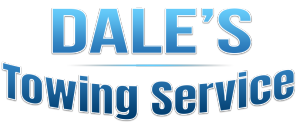Frequently Asked Questions About Towing & Roadside Assistance
Q. Will I need a flat-bed tow truck to tow my all-wheel drive car?
A. No. Most conventional tow trucks are capable of lifting all wheels off the ground.
Q. If my car has an automatic transmission, can it be towed with the drive wheels on the ground?
A. Most manufacturers say yes, but it depends on the vehicle and should only be done over limited distances and at limited speeds.
Q. Is towing harmful for my car?
A. Quite the opposite actually. Since your car is lifted by its tires during the towing process, it will be riding on its suspension, and with the tow truck's suspension absorbing most of the bumps and rough areas of the road, it can be a fairly smooth ride for your vehicle.
Q. My car has been lowered. Can it still be towed safely?
A. Absolutely. In most cases, even cars that have been lowered can be towed safely with a conventional tow truck.
Q. Can you tow motorcycles?
A. Yes. All of our trucks come equipped with all of the equipment needed to safely tow your motorcycle without causing damage.
Q. Can you tow my car out of a parking garage?
A. Yes. We have smaller tow trucks with lower clearances that are perfectly capable of handling this kind of task.
Q. What information do I need to have my car towed?
A. For towing, we need the location of your vehicle, its type, make, model, year, color, license plate number, and the address of where it is going to, as well as a phone number that you can reliably be contacted at.
Q. What are your hours of operation?
A. Our professionals are available for your towing and roadside assistance needs 24 hours a day, 7 days a week, including holidays.
Q. Do I need to be with my vehicle to have it towed?
A. No. As long as the keys are with the vehicle and we have all of the information we need from you, including where the keys are located, you don't have the stay with your car while you wait for us to arrive.
